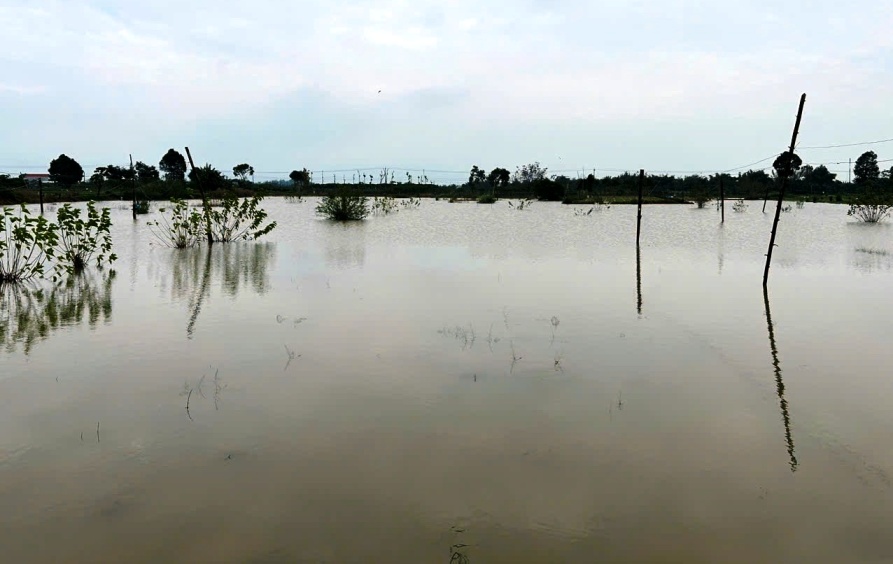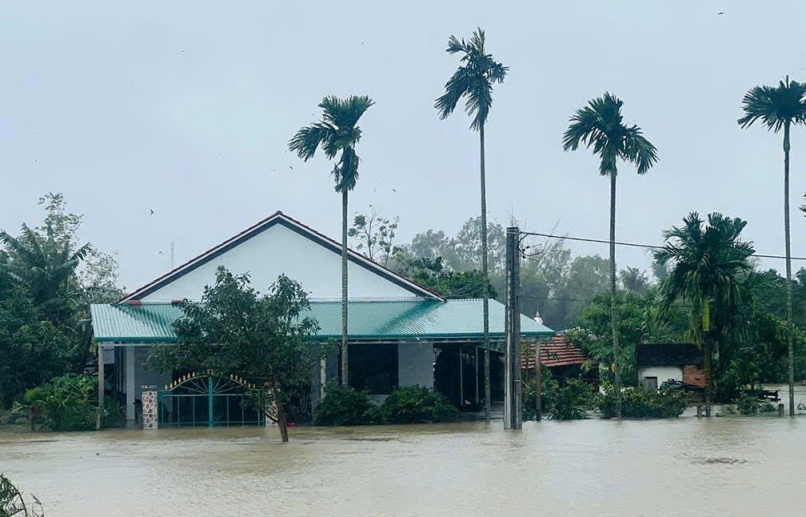Nghia Dung and Nghia Ha communes, in Quang Ngai City, are the largest vegetable growing areas in the city with an area of up to about 10 hectares. However, heavy rains that have lasted for more than a month have caused many farmers' vegetable fields to be deeply submerged in water. Most of the vegetable areas that people planted for Tet were completely damaged.
Speaking to reporters, Mr. Cao Co, in Hamlet 6, Nghia Dung Commune, said that about 20 days ago, his family planted vegetables such as Chinese cabbage, lettuce and Chinese celery on an area of 1,000 square meters. However, the lettuce and Chinese celery were completely destroyed, and although the Chinese cabbage was salvaged, not much could be saved.

The consequences of heavy rains are not only direct losses in vegetable production but also serious impacts on the supply and consumption chain. Vegetables are flooded, rotten and cannot be harvested, leading to crop failure. In addition, when vegetables cannot be consumed in time, vegetable prices in the market also increase, creating a shortage, while farmers do not get the expected profit.
In addition to Nghia Dung commune, prolonged heavy rains have also caused concern for farmers in Duc Pho town. Flooded fields, damaged seeds and the risk of flooding continue to threaten many fields.
In the 2024-2025 Winter-Spring crop, Quang Ngai province is expected to sow over 38,000 hectares, so the demand for rice seeds of all kinds is up to 3,500 - 3,800 tons. However, with the prolonged heavy rains, sowing many times has caused farmers to face heavy losses.

Mr. Vo Doan, Chief of Office of the Steering Committee for Natural Disaster Prevention and Search and Rescue of Quang Ngai province, said: “Currently, in Duc Pho town, 1,203 hectares of rice fields have been flooded. Localities are actively supporting and guiding people to drain water to limit damage.”
The Steering Committee for Natural Disaster Prevention and Search and Rescue of Quang Ngai province has also directed localities and units to deploy measures to respond to heavy rains, to minimize the risk of landslides and flash floods in mountainous areas, and flooding in low-lying areas, while protecting production in the 2024-2025 Winter-Spring crop. Authorities have also mobilized forces to support farmers to limit damage in this year's crop.
